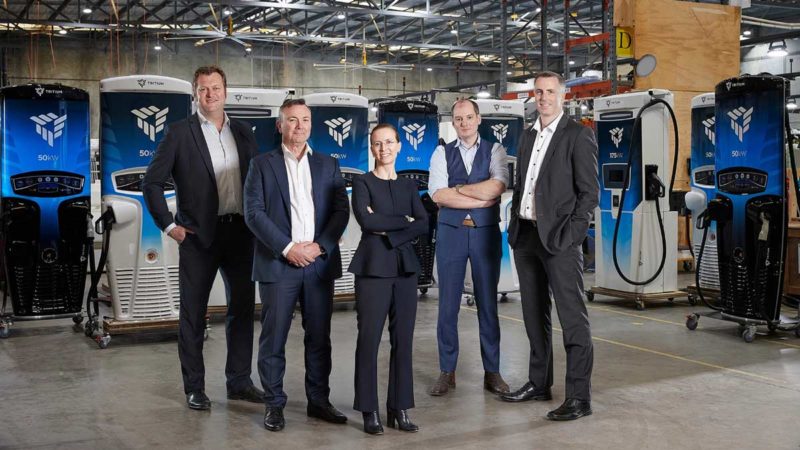Brisbane-based fast charger manufacturer Tritium has commenced trading on the US-based and tech-focussed NASDAQ, becoming the latest in a long line of new mobility companies choosing this “backdoor” approach to going public.
Tritium announced back in May of 2021 that it would go public through a merger with a Special Purpose Acquisition Company (SPAC) – a so-called “blank cheque” company set up and listed publicly so as to pave the way for a backdoor public listing through merger for a previously privately-held company.
Specifically, Tritium announced that it would merge with the US-based Decarbonization Plus Acquisition Corporation II (DCRN) in a deal that was expected to inject an extra $520 million into Tritium’s plans for aggressive expansion.
The necessary merger was approved by DCRN stockholders last Wednesday and the business combination completed on Thursday to take Tritium DCFC Limited public.
Tritium shares will now be traded on the NASDAQ under the ticker symbols “DCFC” and “DCFCW”.
“Our transaction with DCRN is transformative for the acceleration of electrification,” said Jane Hunter, Tritium’s CEO.
“We expect the capital raised through the transaction, together with anticipated additional funding, to support Tritium’s business operations and to help strengthen our products and services to our customers and continue to advance the e-mobility industry.
“The goal in our industry is to reduce global emissions and this transaction will support our mission to electrify transportation.”
Tritium expects global EV sales to have passed 6.3 million in 2021 and expects to see global passenger EV sales grow at a rate of around 17% through 2040. This is good news for a fast-charging company like Tritium, which is now well placed to benefit from the continued and accelerating growth of EV sales and the need for extensive infrastructure.
In October, Tritium reported that it had sold more than 5,000 units of its DC fast-chargers globally, following a record quarter of sales and its largest order backlog to date.
The St Baker Energy Innovation Fund-backed Tritium continued its momentum in December, with an order for 400 of its fast chargers from EVCS, one of the largest fast-charging networks on the United States’ West Coast, in addition to 100 chargers that had already been ordered.
This was followed by the signing of a deal with energy giant Shell to provide its fast-chargers to Shell petrol stations around the globe – the company’s second supply deal with Shell. Though there was no reporting the specific number of chargers to be supplied, the opportunity is nevertheless huge, with Shell boasting over 46,000 retail sites around the world.
At the same time, Tritium also unveiled a new line of “groundbreaking” EV fast chargers that the company claims are more cost-effective operations and infrastructure deployment.
The new Tritium PKM line of fast-charging solutions is able to transmit power across the system at 950V DC rather than 400V AC, which reduces the gauge of cabling in half and can lead to up to tens of thousands of dollars in savings for small charging sites, and up to hundreds of thousands of dollars in savings for large charging sites.
Joshua S. Hill is a Melbourne-based journalist who has been writing about climate change, clean technology, and electric vehicles for over 15 years. He has been reporting on electric vehicles and clean technologies for Renew Economy and The Driven since 2012. His preferred mode of transport is his feet.

